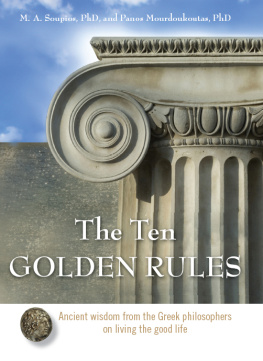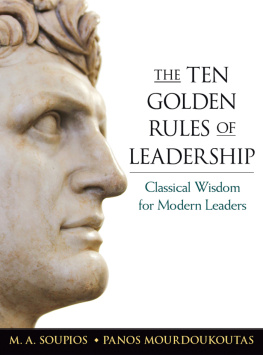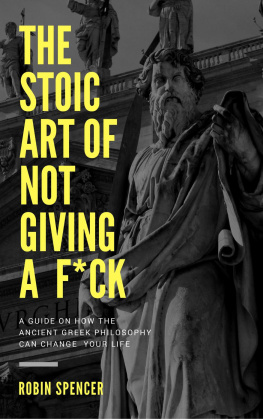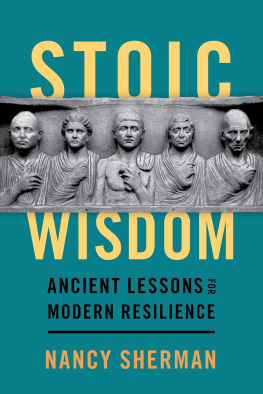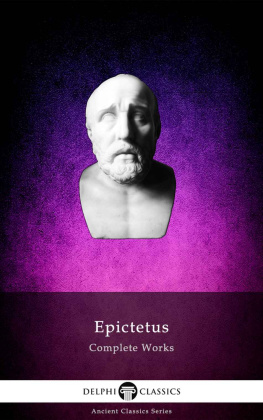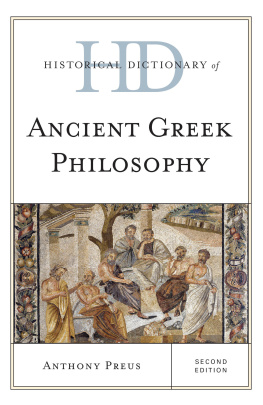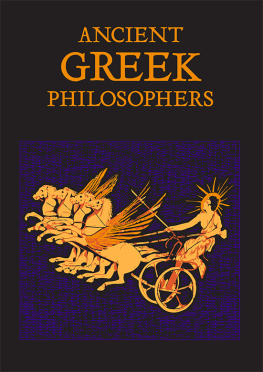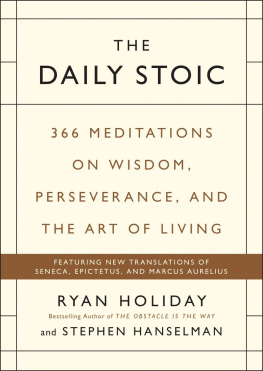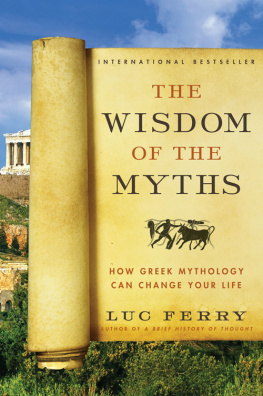ABOUT THE AUTHORS

Michael A. Soupios is a professor at Long Island University's C. W. Post Campus, where he has taught for more than thirty years, receiving several teaching awards. Professor Soupios holds eight graduate degrees, including four earned doctorates. His areas of expertise include philosophy, history, classics, political science, and religion. The author of numerous articles and papers on a variety of classical subjects, Professor Soupios has recently published a full-length study on the cultural history of Ancient Greece entitled The Song of Hellas (2004). Professor Soupios frequently conducts workshops and seminars in spiritual living. He resides in East Northport, New York, with his wife and three children.

Panos Mourdoukoutas is a professor at Long Island's C. W. Post Campus, where he has taught for twenty-five years. Professor Mourdoukoutas has traveled extensively throughout the world, lecturing on business strategy and leadership at a number of universities, businesses, and community organizations. He is the author of several articles published in professional journals and magazines, including the New York Times, Japan Times, Barron's, and Edge Singapore. He has also published several books, including New Emerging Japanese Economy: Opportunity and Strategy for World Business (Thompson/South-Western, 2005) and Business Strategy in a Semiglobal Economy (Sharpe, 2006). In 2001, he received the Emerald Literati Club's Highly Commended Award for Excellence.
Hampton Roads Publishing Company
for the evolving human spirit
HAMPTON ROADS PUBLISHING COMPANY publishes books on a variety of subjects, including spirituality, health, and other topics.
For a copy of our latest trade catalog, call toll-free,
800-766-8009, or send your name and address to:
HAMPTON ROADS PUBLISHING COMPANY, INC.
1125 STONEY RIDGE ROAD CHARLOTTESVILLE, VA 22902
E-mail:
Internet: www.hrpub.com

W hen a 103-year-old man living in the mountains of Messiniaat the tip of mainland Greecewas asked what his secret was, his answer was fairly simple: I have always kept myself busy. I have been living my life. My hair has turned white, my hands and feet are not as strong as they used to be, but I can still reason. And as long as I reason, as long as I keep my mind engaged, my spirit, my soul is at peace. I can still examine and experience the world around me and participate in it, that's what makes me happy. I can reason under the pine tree how to make better baskets. It now takes longermuch longer than it used to take to make each one of them. But it doesn't matter. I no longer make them to earn a living. I make them just for the beauty of it, just for the pleasant thought of young men carrying grapes in vineyards. I can still examine life in the village coffee shop, where I debate local, national, and international issues with my fellow villagers and meet new people visiting the area. I examine life in the village church, where I raise anew the question of our being. I examine life on the farm, where I still plant and nurture olive trees, dreaming of the days the new generation will harvest them, and cut branches to crown Olympic victors. I examine life by my fireplace. I, the old man went on and on. The day I stop examining life, I will be dead. That was two years later, just three months shy of his 105th birthday.
This old man's message about life states loudly and clearly the first rule of spiritual living by reason:
EXAMINE LIFE, ENGAGE LIFE WITH A VENGEANCE; ALWAYS SEARCH FOR NEW PLEASURES AND NEW DESTINIES TO REACH WITH YOUR MIND.
This rule isn't new. It echoes the thought of ancient Greek philosophers and most notably that of Plato through the voice of his hero, Socrates. Living life is about examining life through reason, nature's greatest gift to humanity. The importance of reason in sensing and examining life is evident in all phases of lifefrom the infant who strains to explore its new surroundings to the grandparent who actively reads and assesses the headlines of the daily paper. Reason lets human beings participate in life. To be human is to think, appraise, and explore the world, discovering new sources of material and spiritual pleasure.
Some people fully understand the significance of reason in examining and participating in life. They espouse new ideas, long for new things and new relationships; they are constantly discovering new interests, escaping from their boring routines. They engage life with enthusiasm, grasping life aggressively and squeezing from it every drop of excitement, satisfaction, and joy. Some discover new professional challenges, build new bridges or new skyscrapers, develop new medicines or new computer gear. Others discover new hobbies, scaling mountaintops or exploring the sea bottom or the depths of the jungle. A third group addresses the ills of humanity, the sick, the poor, and the disadvantaged, and amasses funds, food, and medicine to comfort and cure them.
A properly examined life protects people against living life as spectators. It bestows the opportunities that accompany every sunrise and it does so even for those who are no longer in their youth. People who continue to explore life fully, even though they may be advanced in years, can still discover that something new awaits them every day regardless of agea new place to travel, a new book to read, new people to meet. The key to unleashing the potential of reason is attitude. The person who approaches life with childlike wonder is best prepared to defy the limitations of time, is more alive, is more of a participant in life at the age of sixty or even seventy than the average teenager.
That's the case of John, who, after retiring from a sales job in his early sixties, got a university job as a student career counselor. Suddenly, his life took on new purpose and meaning. Every day, he looked forward to getting to his office and to helping young people with their careers, forgetting all about getting old or gaining extra income. Nick's story is more intriguing. After retiring in his early sixties from his financial planning job, he opened up a World Tea House in a retirement community. His life, too, found a new purpose and meaning. Every day, he looked forward to meeting his patrons, sharing a cup of tea with them, listening to their life stories, comforting them and being comforted by them. Retiring isn't about resting on the couch or in bed. It is about doing the things you want to do. It is about working not for money, but for the pleasure of the things you accomplish. James followed a different path. After retiring in his mid-fifties from his banking job, he moved to Southern California, where he turned his stock market trading hobby and knowledge of the financial market into a new career. He became a certified financial planner and developed a large clientele who sought his knowledge and experience to manage their finances. Sometimes, James assisted his clients on a pro bono basis. Other times, he charged a small fee. Yet this new vocation was much different from the old career. He saw clients in his own place at his own pace, without a boss above him, monitoring his performance.
Unfortunately, not everyone fully understands the significance and potentialities of reason. Some people fail to cultivate and utilize it to its fullest extent, and fail therefore to participate in a fully human existence.
Next page
